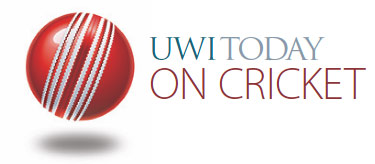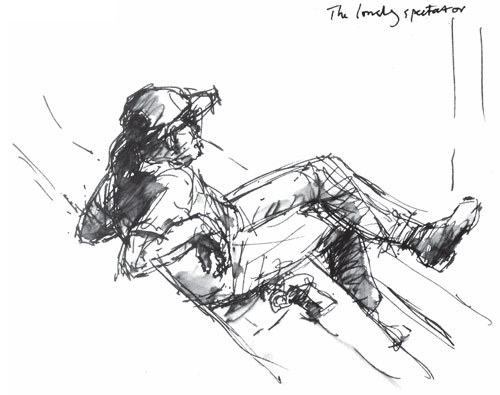 |
 |
 |
|
March 2015 |
It is not simply a West Indian thing to grieve for that glorious epoch when our team strode like behemoths through the cricket world, invoking awe, dread and admiration. The entire cricket world has longed to be mesmerized in that way again, and even though other giants have had their time, the landscape was already flattened when the West Indians were mortally wounded. So it has been hard for anyone commenting on the game not to yearn for a return to the world of the eighties; it has been difficult not to measure contemporary players against those dreadnoughts; but it is not fair. That team was extraordinary, and West Indies cricket was phenomenal as a result. We have to accept what a phenomenon is in terms of its rarity, and we have to understand that the circumstances of yesteryear are so far removed from today’s realities, that for many, they are unimaginable. Technology has compressed time, so that new things gestate, emerge and evolve within weeks or months, and everywhere we are pressed to stay on top of newness – whether it be gadgets and devices, fashion and food, or lifestyle choices. The world that has embraced T20 cricket has opened up a frontier that now concerns itself primarily with the material benefits to be derived from exploiting commercial avenues.
How could a West Indian nation inspire fidelity and pride then? The world today is far more concerned with the rights of the individual, that is true, but in other countries there is still a visible patriotism even as debates about national and franchise teams continue. How is the West Indian player to identify with the call to national arms? Increasingly, social media voices are saying it is better to break up and go it alone as nations or franchises. Franchise cricket is an attractive proposition for players concerned with meeting the needs of their families and enhancing their social status. Under the armpits of an administrative board that has been more engaged in adversarial behaviour towards them; has tried to make it the norm that contracts remain hanging in the air, and reneged on several agreements; where should their allegiance fall? We can argue all we like that they must feel pride in representing us, the West Indies people, but in all our claims that West Indian cricket belongs to us, have we done enough to put our money where our mouths are? Have we represented ourselves as a West Indian people worthy of support? We’ve hollered for years about poor leadership throughout the region, we’ve clamoured for changes in constitutions, both national ones and the WICB’s, but we have essentially been all noise and no action. The WICB’s election is due on March 7, and from within its own caverns, it has only been able to throw up the names of Dave Cameron and Joel Garner. The Board has boasted that it is accountable to no one, and we foam at the mouth but let that status continue. Directors should be ashamed as humans to allow the incumbent to continue to show his face as the head of West Indies cricket. Richard Pybus presented his recommendations for West Indies cricket a year ago at a projected cost of around US$4.5 million. He was adamant that players should accept the principle of “Team Windies First.” We would all like to see that, but we cannot ignore the reality of the call of professional leagues and franchise teams. When the IPL emerged, the Board of Control for Cricket in India (BCCI) did everything it could to stop them, but had to capitulate because of its increasing popularity. The WICB, faced with the US$42 million compensation bill that the BCCI is demanding, may find itself under Cameron’s watch, finally choosing to end its sway over West Indies cricket. Who knows if it may not find it expedient to sell the entity known as the West Indies team as a franchise to the BCCI for that US$42 million? Anything is possible, and if we don’t intervene more forcefully, we might see the end of all things West Indian right here in our time. And the question of who owns West Indies cricket will probably be a moot one, just like the idea of a West Indian nation. |



 The allure of playing franchise cricket in all its finery has captured the imagination of a couple of generations who cannot align themselves to the principle of nation first, because despite all the years invested in building the concept, the idea of a West Indian nation has practically been annihilated. The post-Independence Caribbean was quickly hijacked by leaders seeking individual glory, who never demonstrated the wisdom of knowing that the communal strength of a regional bloc would be far more potent than impoverished states under the yokes of haughty emperors.
The allure of playing franchise cricket in all its finery has captured the imagination of a couple of generations who cannot align themselves to the principle of nation first, because despite all the years invested in building the concept, the idea of a West Indian nation has practically been annihilated. The post-Independence Caribbean was quickly hijacked by leaders seeking individual glory, who never demonstrated the wisdom of knowing that the communal strength of a regional bloc would be far more potent than impoverished states under the yokes of haughty emperors.